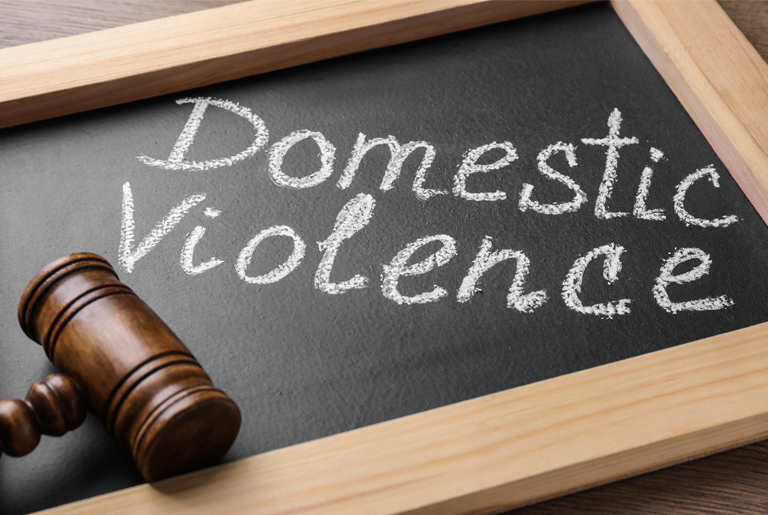Domestic violence is a serious offence that usually takes place within a family or an intimate relationship – boyfriend/girlfriend, common law partners, spouses, children, parents and even relatives. It is an assault if the defendant is accused of stabbing, hitting, kicking, punching, pushing, stalking, threatening death, throwing objects or causing bodily harm of any kind. Domestic assault cases are a priority for police and prosecutors in Ontario and have been declared a “zero-tolerance” crime by both federal and provincial governments.

Some people accused of domestic assault may assume that if they plead not guilty to the Crown or Court that the charges will be withdrawn with an apology for the misunderstanding. This never happens and it never will. Just because you are innocent or falsely accused doesn’t mean you will be acquitted. The criminal justice system works on evidence, examination and cross-examination, and if you are found guilty, the consequences could be profound and life changing. Considering the seriousness of the charges and their lifetime impact on the accused, it is recommended that you seek help from a criminal defence lawyer.
Charged with Domestic Assault? Understand the Criminal Context
| While there is no specific offence for family or domestic violence in the Criminal Code of Canada, most acts of violence are regarded as crimes. Domestic assault falls under the sections of the Criminal Code dealing with different types of assaults (ss. 265-268). Simply put, it is an alleged crime that occurs in a domestic relationship between two people of the opposite or same sex. |
Potential Consequences of a Domestic Assault Conviction
While a criminal record has several negative consequences, domestic assault cases can result in the Court imposing additional conditions when the accused is on bail and/or found guilty.
General Consequences of a Criminal Record:
- If you are convicted and don’t hold Canadian citizenship, you may be deported and denied re-entry to Canada. Until deportation, you may be held in custody for a long time, no matter the length of the criminal sentence.
- Even if you are not deported, you may be denied citizenship if convicted.
- You may be asked to provide a DNA sample for legal records.
- Since many employers check the criminal records of interviewees, you may have difficulty getting a job.
- Your photograph, fingerprints and other personal details may be retained and used by police.
- You may be restricted from meeting your children.
- You will likely be restricted from entering the United States and other countries.
- It may restrict you from pursuing certain occupations, professions or specific training programs.
Apart from these, a criminal conviction can also negatively affect your relationship with friends, family, colleagues and acquaintances.
Additional Consequences of a Domestic Assault Conviction
It is often devastating for the convicted as well as their family to have strict conditions imposed by the courts. Even if the victim does not want to proceed with criminal charges, it is beyond their choice to stop the criminal proceedings. And even when both the accused and the victim want to be in touch, the courts can restrict contact, especially if they feel that there is a serious risk of another violent incident.
Why You Need a Criminal Lawyer
If you have been charged with or accused of domestic assault in Canada, you need to seek the help of an expert criminal defence lawyer. While self-representation is certainly possible, it is not advisable. Representing yourself in court without any legal education, experience or assistance can have disastrous results. Moreover, the seriousness and complexity of a domestic assault case requires the skill, knowledge and emotional detachment of a certified criminal lawyer. You should always consult a lawyer with expertise in domestic violence cases before speaking with police, as anything you say during your interrogation can be used against you at trial.
Allegations of domestic violence or abuse are common in troubled relationships. When love comes to an end, it sometimes gives rise to the sad reality of legal charges and court proceedings. While it’s not always easy to deal with a broken relationship, there are ways to defend yourself against domestic assault charges and prove your innocence. Hiring a criminal lawyer early ensures that your case is thoroughly investigated and that your legal rights are protected throughout the court proceedings.

